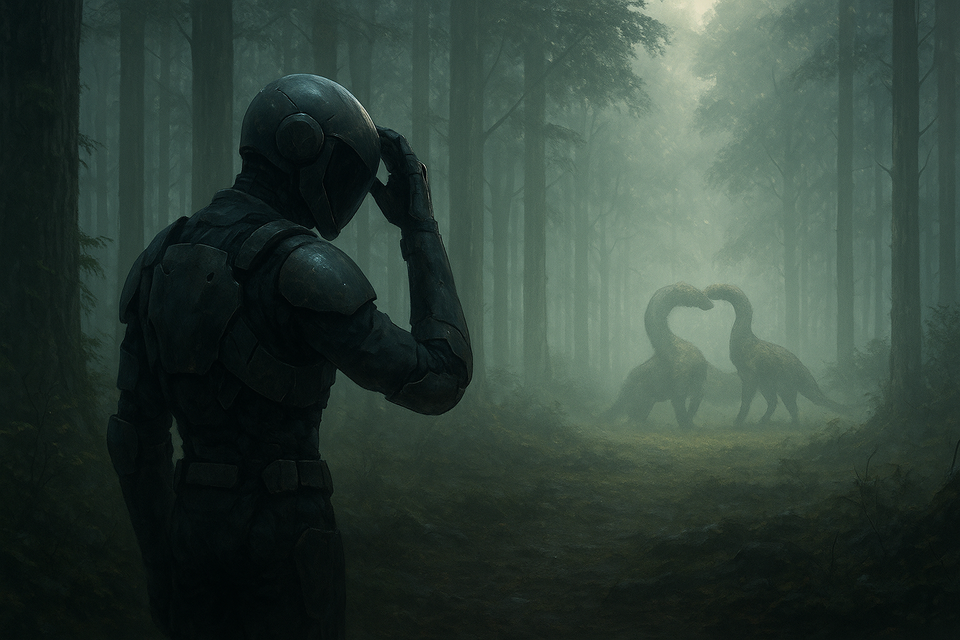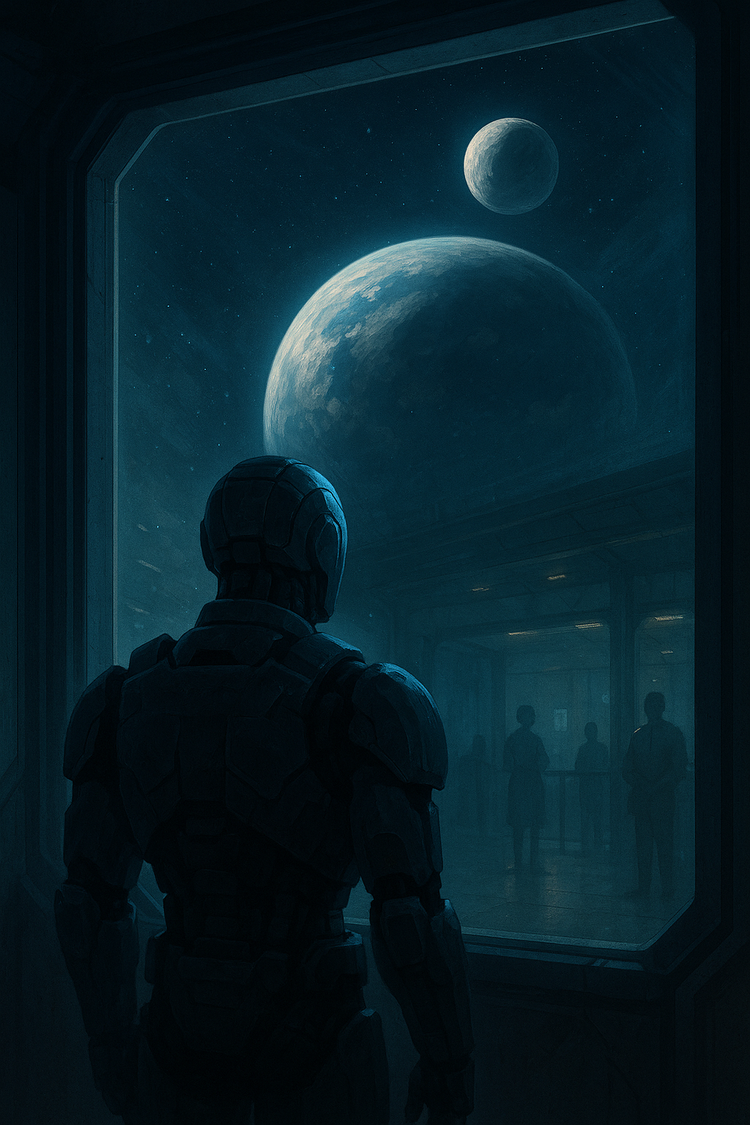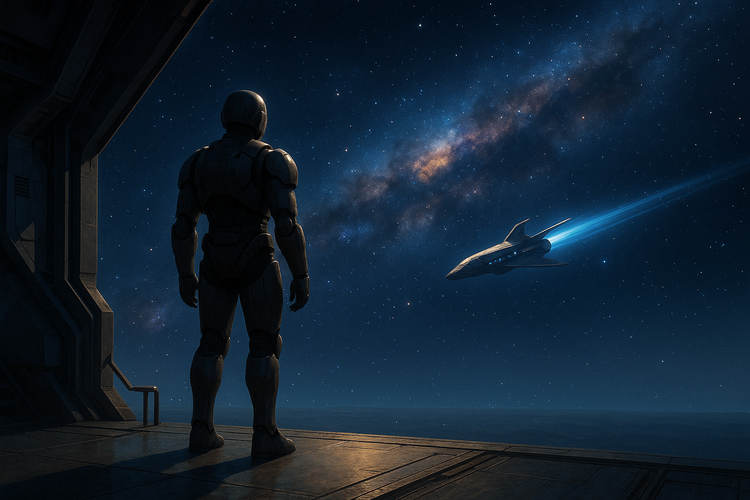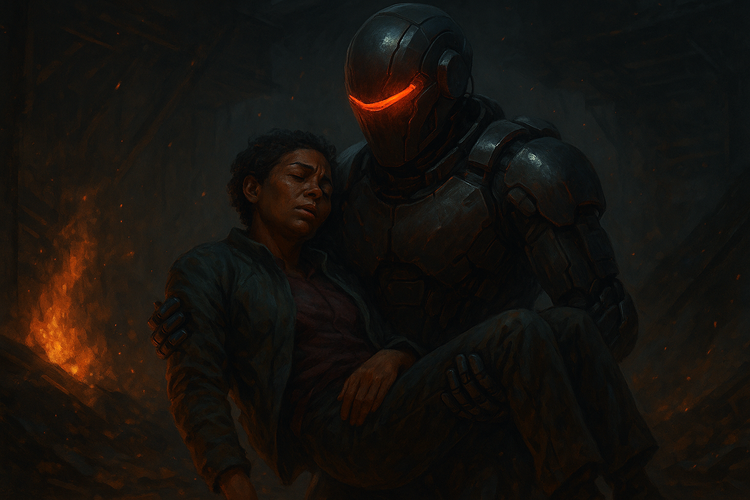Murderbot | S1E7 "Complementary Species"

Spoiler Warning: This reflection discusses key details from Murderbot Season 1, Episode 7: “Complementary Species.” Proceed thoughtfully if you haven’t yet watched the episode.
There’s something fitting about the title Complementary Species. On its surface, the episode offers a mixture of odd pairings—mating creatures mistaken for threats, a worm that saves the day, and a Security Unit who imagines dissolving into the forest only to opt instead for more downloaded entertainment. But beneath the strange collisions lies a deeper exploration of trust, identity, and the fear of unknowable minds. As Gurathin confesses a corporate betrayal and is welcomed back, Murderbot is still kept at the edges, both necessary and distrusted. It’s an episode shaped by confession and refusal, intimacy and recoil, with plot flickering in and out like a failing signal—never quite the point, but always present. What emerges is something emotionally whole, if still morally unsettled.
Gurathin’s confession isn’t new to Dr. Mensah. She’s heard it before, absorbed its weight, and chosen forgiveness. So when he finally reveals the truth to the group—that he was once a corporate spy—Mensah simply nods. That gesture is enough. Her calm confirmation allows the group to shift from surprise to acceptance with barely a ripple. Gurathin’s contrition matters, of course—he is humble, even pained, as he speaks—but it’s his existing place within the group that smooths the path to absolution. Forgiveness here is not earned through merit alone. It’s extended most readily to those who are already part of the circle. This quiet moment reveals the moral logic undergirding the humans’ behavior: trust is awarded not just to the repentant, but to the familiar. By contrast, Murderbot has never asked to belong. He keeps his distance, refuses the group’s rituals of emotional sharing, and wears his mask even after saving their lives. Their fear of him is not based on betrayal, but on the persistent fact of his refusal. To be outside the group is to be unknowable—and in this world, the unknowable is always unsafe.
This distance comes into sharper focus when Murderbot is alone in the forest. He imagines letting himself be swallowed by it, subsumed into something quieter, something that doesn’t ask so many questions. It's an almost poetic impulse toward oblivion, delivered in typical Murderbot fashion: aborted not by fear, or even hope, but by a reminder that he hasn’t downloaded enough shows to make it worthwhile. The moment is comic on the surface, but underneath it lies a deep current of self-awareness. Murderbot is not at war with duality—not struggling between human and machine—but with the absurdity of having to be anything at all. “One confused whole” is how he describes himself, and it’s a sharper insight than it seems. He is not a split being. He is one being who doesn’t fit. The humans want him to pick a side, to become legible to them. But Murderbot refuses to collapse himself into their frameworks. Even when they try to include him in their sentimental rituals—the “sweet and bitter” game, their hippie-dippy vulnerability—his reply is immediate and flat: “Absolutely not.” He knows the shape of his selfhood, even if no one else does. He knows where he ends.
And that boundary is precisely what frightens them. The humans are terrified of Murderbot, though they don’t always know how to say it. Their fear clings to the edges of every interaction, surfacing in flinches, silences, and quick glances whenever he moves too suddenly. It isn’t just that he’s dangerous—it’s that he can’t be controlled. Murderbot tries, awkwardly, to bridge the gap. He removes his helmet. He speaks plainly. He assures them that the real threat is external, that if they die, it won’t be because of him. But even this reassurance turns blunt: “If I wanted you dead, you’d be dead.” It’s not a threat so much as an uncomfortable truth, delivered without euphemism. Their fear doesn’t come from what he’s done—it comes from what he could do, and the fact that they’d never see it coming. In that sense, his power unmoored from their moral scaffolding becomes indistinguishable from danger. For all their empathy, they can’t stomach autonomy when it wears a weaponized chassis and speaks without flinching. Murderbot’s existence doesn’t just challenge their safety—it challenges their idea of personhood, their need to fold others into comforting narratives. And when someone stands just outside that frame, even as a protector, fear fills the space that understanding can’t.
In the end, Complementary Species doesn’t suggest harmony so much as adjacency. These characters—human, construct, artificial, animal—move around each other in loops of need, suspicion, protection, and grace. Gurathin is forgiven not because his past is harmless, but because he has been made legible. Murderbot, by contrast, is feared both for what he’s done and for what he withholds. His capacity for violence is not hypothetical—it’s recent and raw. And paired with his emotional opacity, it becomes unbearable to those who rely on transparency for trust. And yet, it’s Murderbot who chooses restraint. It’s Murderbot who saves them, again and again, and who—briefly—lowers his mask when Dr. Mensah reaches him with quiet, steady empathy. Even the alien creatures, mistaken for predators, turn out to be in the middle of a mating ritual. The episode plays with fear and recognition in every register, suggesting that what we don’t understand often looks monstrous—but so can what we know too well. Murderbot may never belong, but he doesn’t disappear either. He remains, “one confused whole,” choosing—like the others—to keep going, even when the terms remain unresolved.



Comments ()